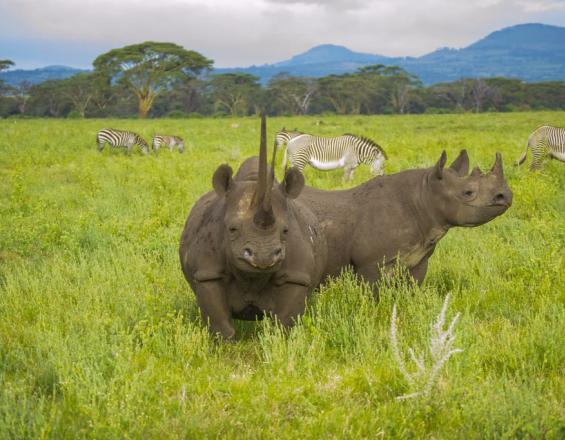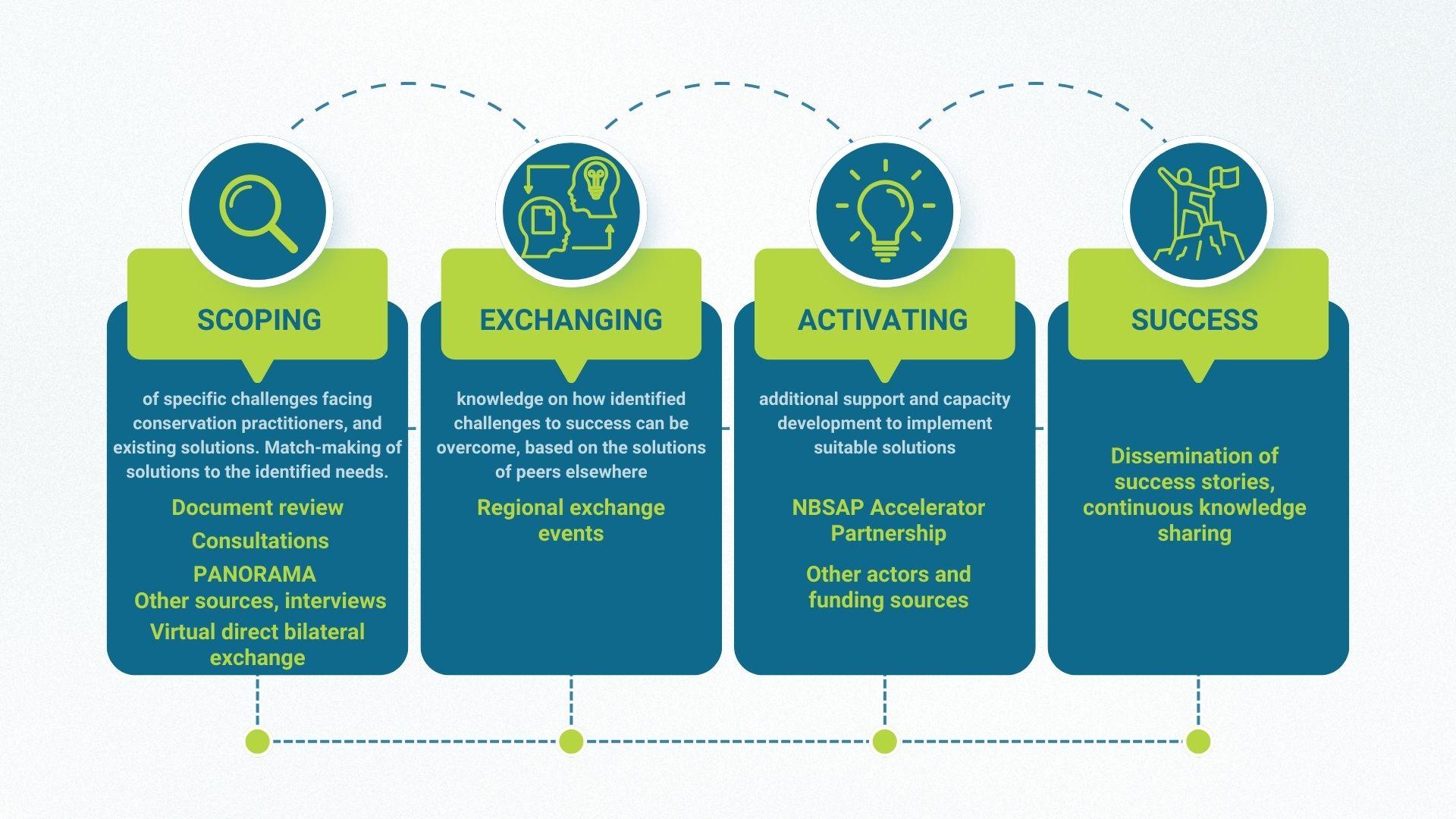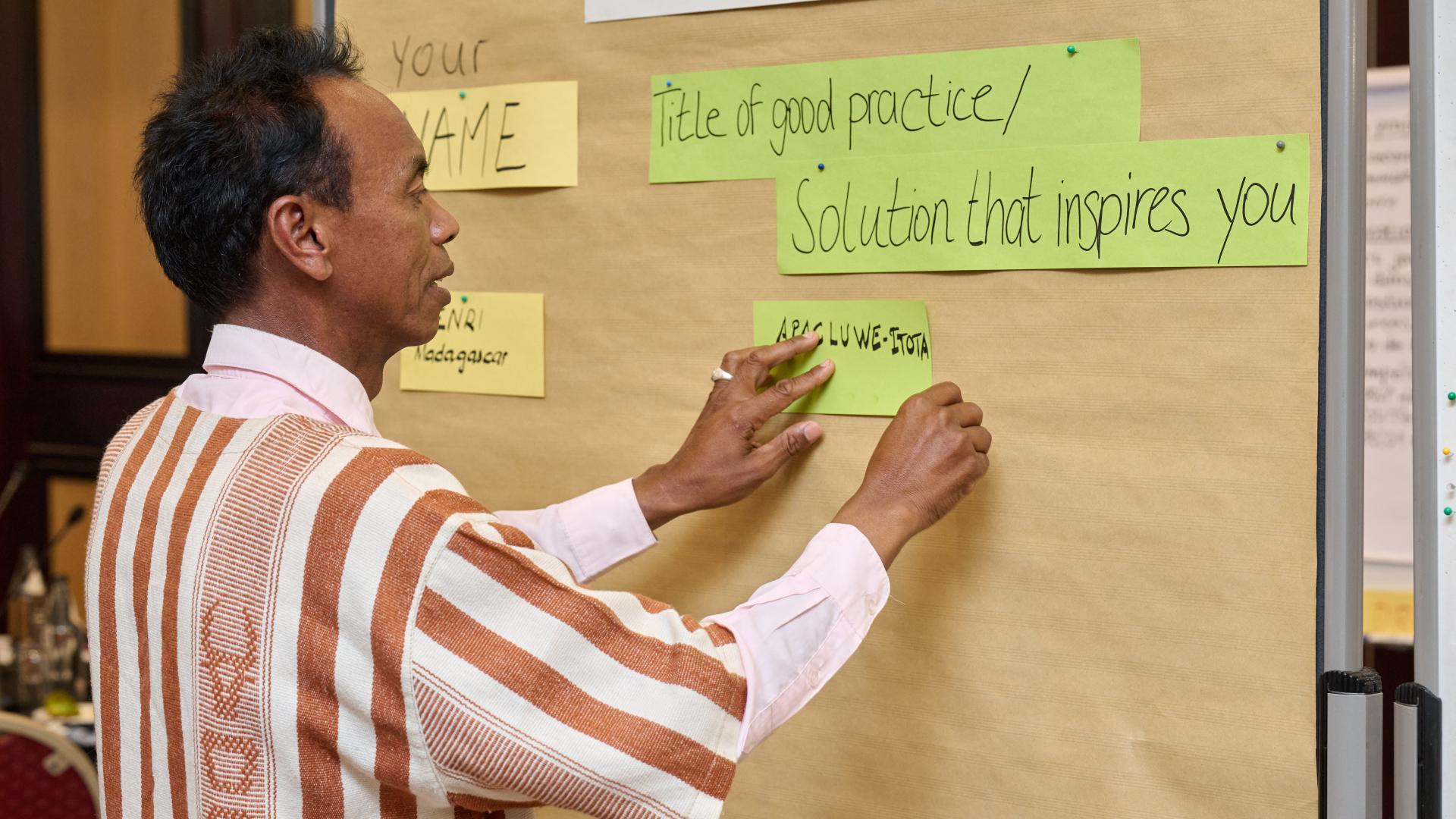The Kunming-Montreal Global Biodiversity Framework (GBF) was established to drive coordinated action on this solution. Yet, as with its predecessor, the Aichi Biodiversity Targets, progress depends not only on commitments, but on practical implementation.
When countries learn from one another, they gain insight into what works, increasing effectiveness and speed of implementation. Increasingly, peer learning and knowledge exchange are becoming powerful catalysts for turning commitments into action.
Across ecosystems and borders, the question becomes: What solutions have proven effective in similar contexts? How have others succeeded in addressing similar challenges?
IUCN has been implementing a project that first seeks to understand shared priorities from National Biodiversity Strategies and Action Plans (NBSAPs) of several countries in a region; derive joint “learning topics” from that; and then match these learning needs with existing knowledge, including suitable Solution case studies from PANORAMA. In the next step, key actors in each region are brought together for in-person peer-to-peer exchange events. This project, with its focus on practical implementation of national biodiversity priorities, complements the PANORAMA-CBD collaboration on advancing knowledge management as part of NBSAP design.
The regional knowledge exchange forums hosted by IUCN and supported by GIZ, as part of it's GBF Implementation Project under the umbrella of the NBSAP Accelerator Partnership. Two of these events have already taken place: one in Namibia with several African countries, and another in Indonesia with ASEAN member states. The third and final one, to be held in Peru in September, bringing together several Latin American countries.
The regional knowledge exchange events bring together government representatives, experts, civil society, and local communities to share lessons learned, identify collaboration opportunities, address common obstacles, and shape informed actions for advancing NBSAP implementation.
The PANORAMA methodology runs through the design of the events as a guiding thread , supporting learning from existing Solutions, reflection on success factors that can be replicated, documentation of the participants’ own solutions as new case studies, and “replication pledges” (commitments to replicate some of the experiences from those Solutions that each participant found most inspiring).
Sharing knowledge to inspire action
By learning from comparable experiences, participants gain insights that can unlock new strategies and accelerate national action.
The events held in Namibia and Indonesia offered participants a space to explore shared challenges in biodiversity management and identify regionally relevant solutions. Both highlighted the power of collaboration and peer learning in advancing conservation outcomes.
The Namibia workshop, held in May in partnership with Namibia’s Ministry of Environment, Forestry and Tourism (MEFT), brought together 40 participants from government and civil society.
Meanwhile, the Southeast Asia Regional Knowledge Exchange Forum held in Indonesia in July, gathered countries from the Association of Southeast Asian Nations (ASEAN), including Indonesia, Vietnam, Lao PDR, the Philippines, and Thailand.
Across both regions, experts pointed out common obstacles, such as weak institutional structures, inadequate financial mechanisms, and insufficient biodiversity data.


